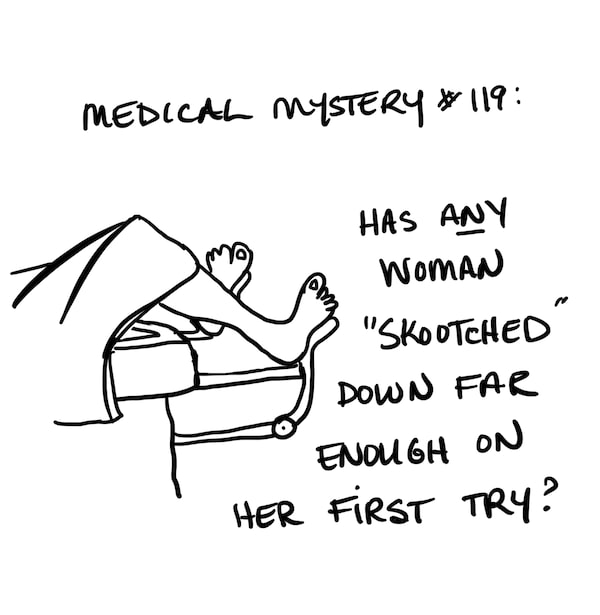This is the weekly Amplify newsletter, where you can be inspired and challenged by the voices, opinions and insights of women at The Globe and Mail. Jessie Willms is an audience growth editor at The Globe and Mail.
There’s an old idea that deserves a new light – and a new, collective approach.
Consider the kinkeepers – the people who work to sustain the bonds between family members. The term, first coined in 1985 by University of Toronto sociologist Carolyn Rosenthal, defines a kinkeeper as the central hub of a family; an individual who keeps loved ones in touch with one another, whether by writing letters (or texts), making phone calls (or FaceTime requests), or organizing visits and group celebrations. Think of the Thanksgiving dinners, Christmas lunches or other ritual occasions, organized by aunties and omas. The card that arrives in the mail at the right time each year for your birthday. The gentle suggestion that you should really give your cousin a call.
In a recent edition of her weekly newsletter, American writer Ann Friedman provided a slightly more modern definition: Kinkeeping is the “strategic nurturing of bonds.” I like this definition more for its suggestion that what’s worth keeping and sustaining are no longer just biological family ties, but our chosen kin, too. I myself am thrilled to be a kinkeeper – a sustainer of group text conversations, of calendar invites to get friends who live in different cities together on a regular basis. Looking over a crowded apartment – plates on knees because the invite list expanded too quickly, dishes stacked to the ceiling, coffee portioned out by the half-cup because, again, the ratio of actual seats to bums was miscalculated – gives me joy, and makes it clear this is work worth doing.
That word – “work” – is a reminder that kinkeeping is also intentional and deliberate. Sometimes, large amounts of energy are required to sustain a relationship. To have a house with a crowded table requires effort that’s both real and valuable. Indeed, healthy friend groups and close-knit families don’t just happen. There’s no magic behind the nurturing, or sustaining, of relationships. It falls to someone to do that work.
My one (not-so-minor) quibble is that in reality, it’s almost always women doing this unpaid (obviously) labour. The job of the family-based kinkeeper itself even tends to pass from mother to daughter, generation after generation. And as British journalist Marianna Manson writes, the work of kinkeeping is almost entirely imperceptible. “Kinkeeping refers to the labour that, by its very definition, is supposed to be invisible. It exists to silently create convenience while the recipients enjoy the benefits of a smoothly running home.”
As women, this is work that’s expected of us. A well-planned friend trip, where every Google doc is owned and populated exclusively by one gender. Milestones celebrated. Baby showers and engagement parties organized. We know this work is done almost exclusively by women, even though it benefits all genders.
There is real joy to be found in being a kinkeeper. What’s a shame is that men clearly benefit from the sustaining of ties, but many miss the chance to be the sustaining force. They miss the reward that comes with keeping people together.
We know that many men don’t have enough close friends. In a recent American study, only about one in five men indicated they received emotional support from a friend in the previous week, compared with four in 10 women. Close friendships, science says, can improve happiness and play a role in promoting our overall health.
Instead of a default role held by a well-organized woman, kinkeeper should be a title that’s shared across social circles and worn proudly by more members of the community. It’s valuable work, and should be visible within our chosen networks.
Of course, there are valid reasons someone wouldn’t have the capacity for this role: being spread too far by geography, or too thin by the burdens of work or caring for aging parents, or being in the chaos of parenting small children. But it’s also true that an unequal division of labour based entirely on gender, resulting from our failure to interrogate who holds what role in a relationship, is unwise and unfair.
As Friedman suggests, there’s a parallel universe full of more meaningful relationships and deeper connections that could exist, if only we shared the kinkeeping responsibilities more evenly.
“Imagine if we tried to expand the number of kinkeepers, even a little bit, by respecting this work as work,” she writes. “As vocation.”
My pitch, in short, is to take the job seriously. In each of our group chats, or well-defined circle of bonds, designate and rotate. Share the burden, and joy, of being the sustainer. Take the title for a set period of time, and formally hand it off to another person – just as you might clock in and out of a shift at work. We can distribute more equitably the responsibility of marking anniversaries, keeping the group chat updated or planning the next check-in. At worst, well, even the most poorly planned brunch still includes waffles and coffee. And when the last plate is cleared, the torch gets passed – with a better understanding of how much work it is.
At best, the hope is that we deepen our circles, enrich our friendships and keep close those who sustain us.
What else we’re thinking about:
The New Yorker’s Jia Tolentino has contemplated how the Ozempic era has already missed an opportunity to reconsider weight and worth. “It is possible to imagine a different universe in which the discovery of semaglutide was an unalloyed good – a powerful tool to untangle the knot of genetic tendencies, environmental forces and behaviours that conspire to make more and more Americans gain weight,” she writes. In this other world – which is incredibly difficult to imagine given what we know about society’s ingrained dislike and distrust of fat bodies and those who live in them – metabolism, appetite and weight could be variables, points of data. Instead, she writes, the fixation on Ozempic (and similar drugs) renewed a fixation on thinness.
Marianne

Marianne Kushmaniuk for The Globe and Mail
Inspired by something in this newsletter? If so, we hope you’ll amplify it by passing it on. And if there’s something we should know, or feedback you’d like to share, send us an e-mail at amplify@globeandmail.com.
 Jessie Willms
Jessie Willms